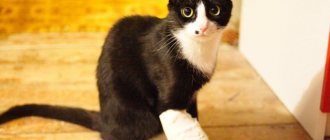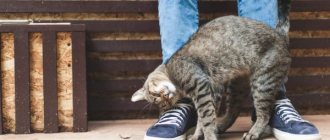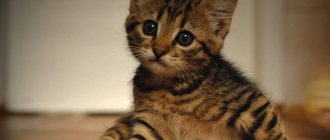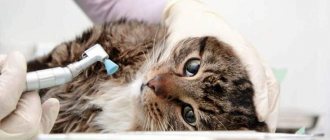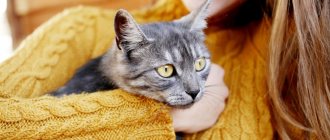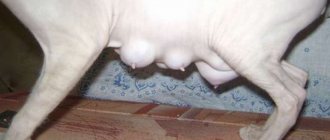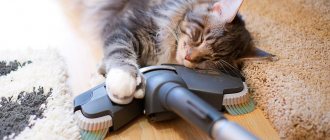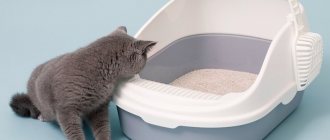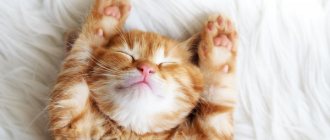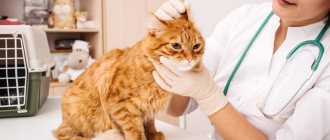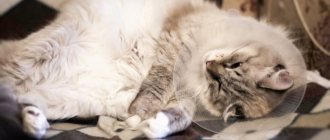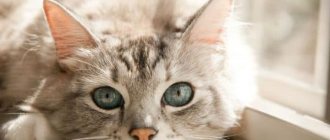An abscess in domestic cats and cats, accompanied by the appearance of purulent wounds, is rare. Stay-at-home pets rarely suffer serious injuries, but such situations should not be ruled out. The resulting abscess can lead to blood poisoning. Therefore, it is very important to recognize it before serious complications occur and to be able to provide first aid if an emergency visit to the veterinarian is not possible.
What is an abscess in a cat in simple words?
When pyogenic microbes penetrate through damaged skin or mucous membranes in the superficial or deep layers of tissue, an abscess (abscess) forms in the cat. It is a limited cavity filled with pus. The exudate that accumulates as a result of inflammation gradually corrodes the protective capsule, increasing the affected area.
Causes of an abscess
In most cases, the cause of infection at the wound site is streptococci and staphylococci. But sometimes inflammation occurs as a complication of another disease.
Risk factors
The risk of an abscess increases in the presence of several factors. These include:
- Free range. On the street, the animal has to defend its territory, fighting rather aggressive competitors.
- Gender. Males have a more developed territorial instinct than females. Unneutered cats have a special zeal for upholding personal boundaries. They can start a fight even in the apartment if the other pet tries to eat from their feeder or take a nap on their favorite bed.
- The arrival of a new family member. “Old people” rarely welcome new pets. In addition to defending territory, jealousy awakens in them towards their owners. If reconciliation is not promoted, the “recruit” may find himself out of favor for the rest of his life.
- Insufficient oral hygiene. Gums are an ideal place for bacteria to grow. Tartar, which increases the gaps between teeth and gums, contributes to the formation of cavities that are attractive to bacteria.
- An undertreated abscess or neglect of antiseptic rules when giving an injection. A wound that is not completely healed or dirt that gets into the injection site is fraught with the development of infection with subsequent inflammation.
With age, the territorial instinct weakens. For this reason, pets over 7 years old practically do not participate in fights.
Is there a predisposition?
A genetic predisposition can be traced in long-haired breeds (Maine Coons, Siberians, Persians), often suffering from inflammation of the paraanal glands. Also at risk are pets prone to obesity (Sphynxes, Britons, exotics).
Prices for appointments in our clinics
| Name of veterinary services | Unit | Price, rub |
| ⭐ Initial appointment | 1 animal | 400 |
| ⭐ Repeated appointment | 1 animal | 200 |
| Primary reception of ornamental, exotic animals, birds and reptiles | 1 animal | 1000 |
| Consultation without an animal | — | 500 |
| Consultation with a doctor based on test results | 1 PC. | 400 |
